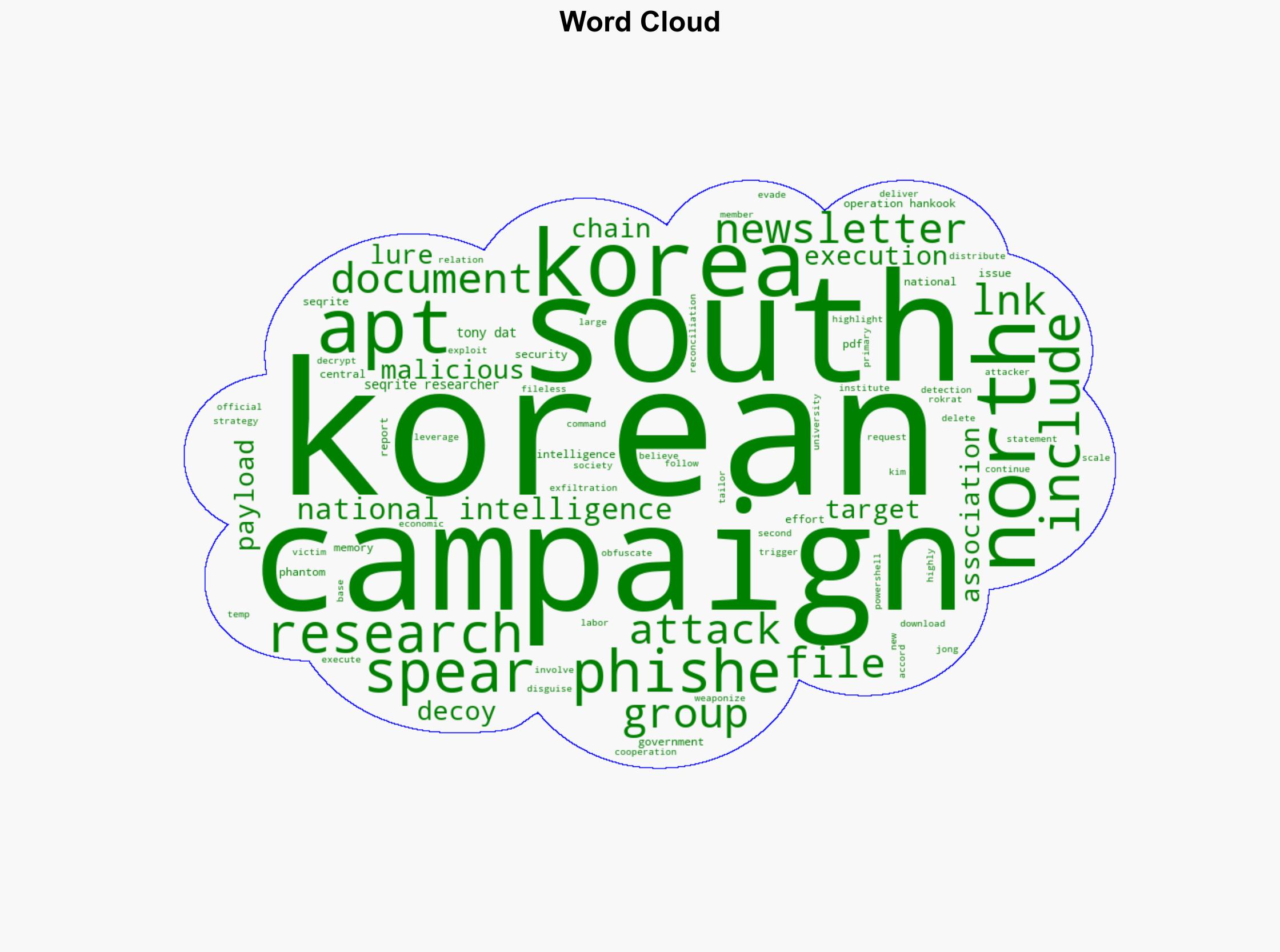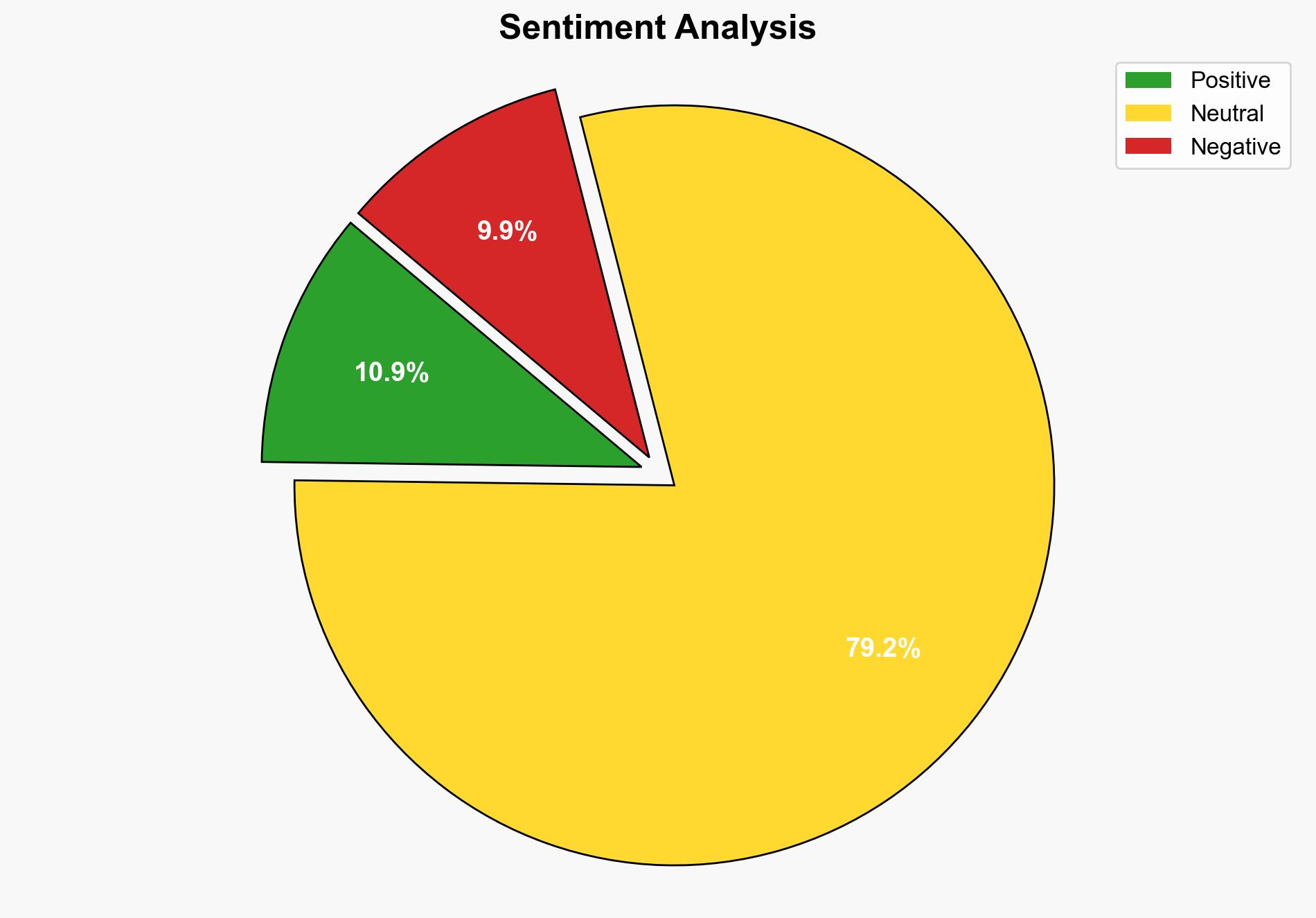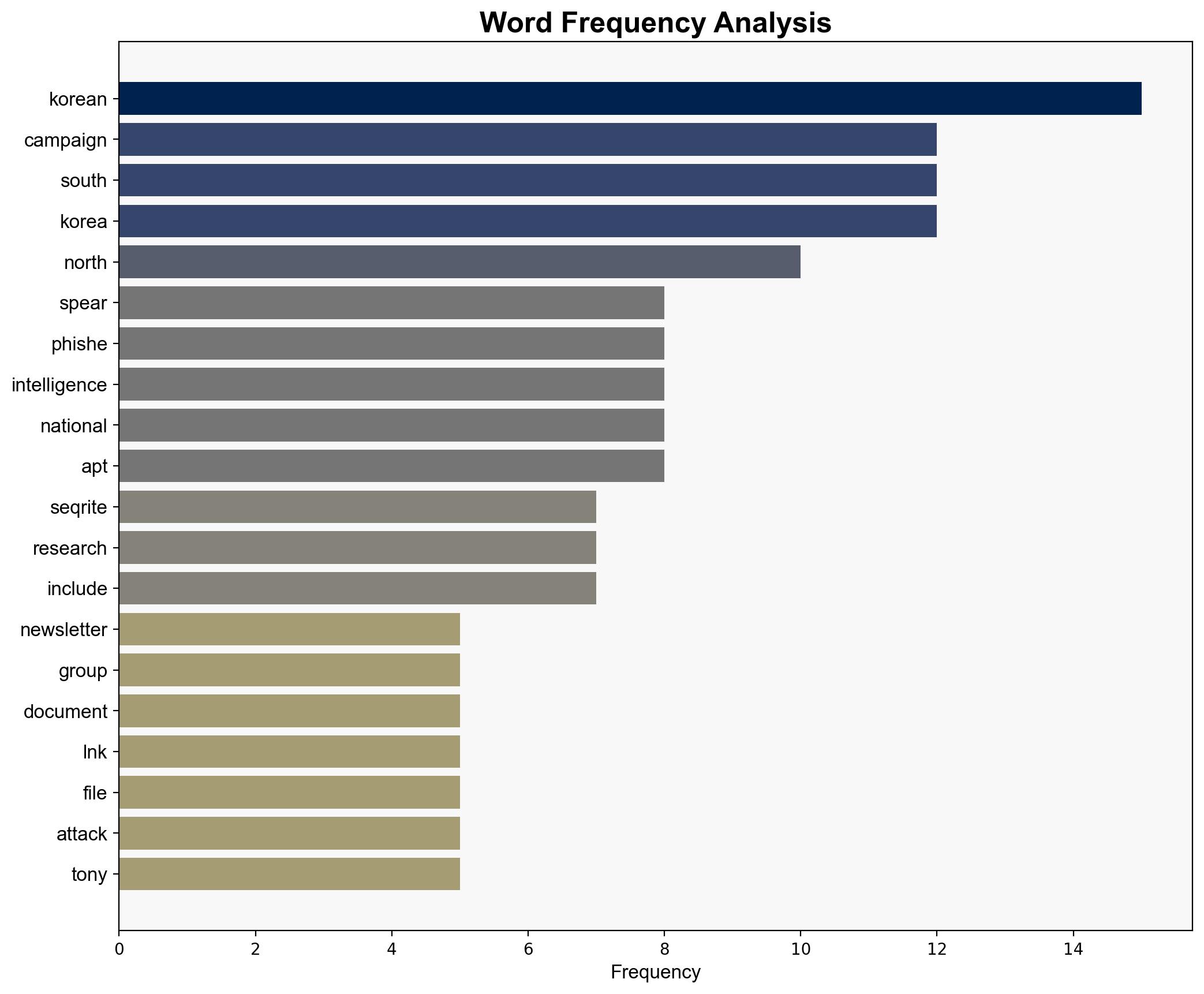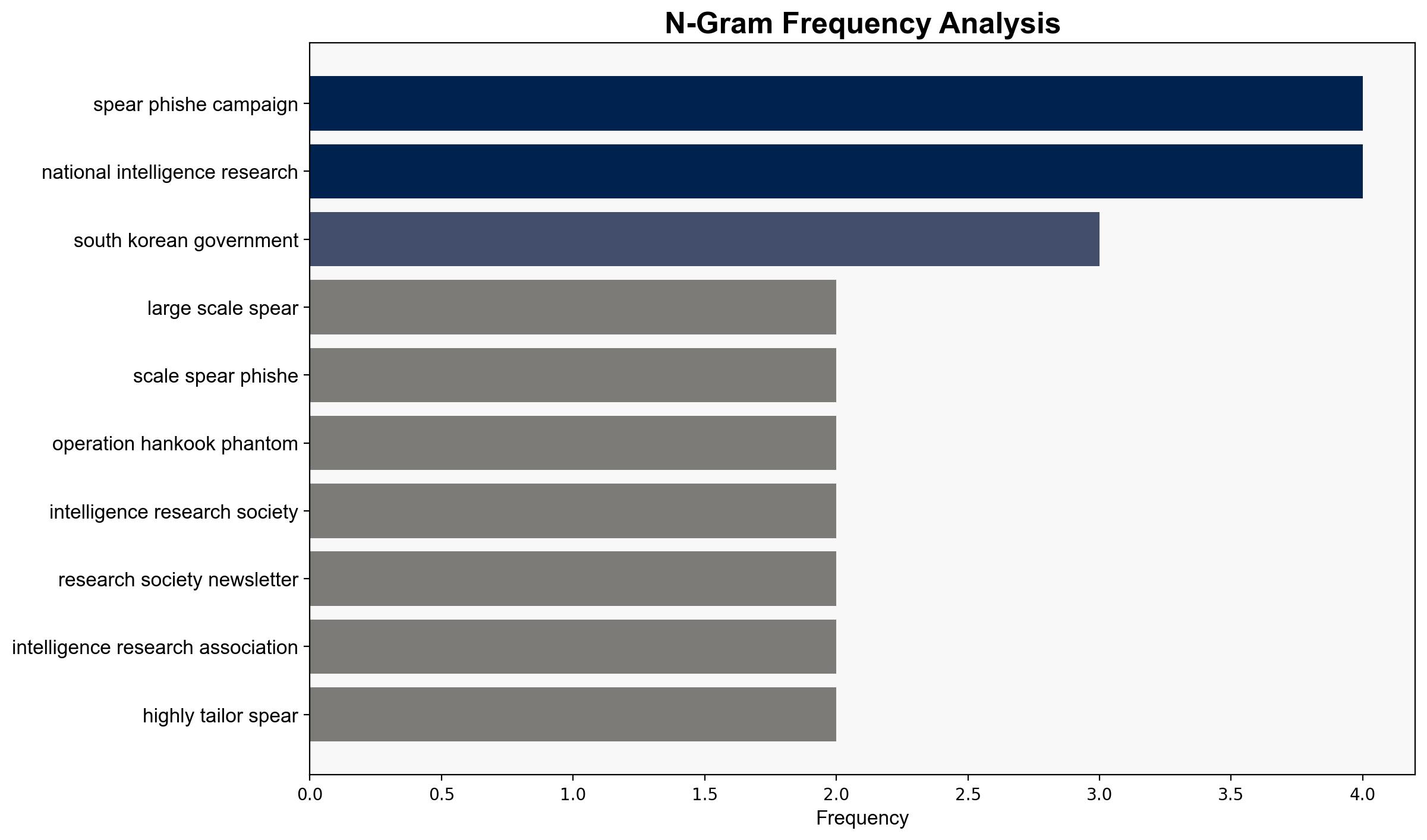North Korean Hackers Weaponize Seoul Intelligence Files to Target South Koreans – Infosecurity Magazine
Published on: 2025-08-29
Intelligence Report: North Korean Hackers Weaponize Seoul Intelligence Files to Target South Koreans – Infosecurity Magazine
1. BLUF (Bottom Line Up Front)
The most supported hypothesis is that North Korean state-sponsored hackers are conducting a sophisticated spear-phishing campaign to gather intelligence and disrupt South Korean governmental and research institutions. Confidence in this assessment is moderate to high, given the technical evidence and historical context. Recommended action includes enhancing cybersecurity measures and increasing intelligence sharing among targeted institutions.
2. Competing Hypotheses
1. **Hypothesis 1**: North Korean state-sponsored hackers are executing a targeted spear-phishing campaign to gather intelligence and disrupt South Korean governmental and research operations.
– **Supporting Evidence**: The use of sophisticated phishing techniques, such as weaponized documents and obfuscated payloads, aligns with known North Korean cyber tactics. The campaign targets institutions involved in national security and strategic research, consistent with North Korean intelligence priorities.
2. **Hypothesis 2**: A third-party actor is masquerading as North Korean hackers to create geopolitical tension between North and South Korea.
– **Supporting Evidence**: The campaign’s timing and choice of targets could be designed to exacerbate existing tensions. The use of North Korean decoys and themes might be an intentional misdirection to obscure the true origin of the attack.
3. Key Assumptions and Red Flags
– **Assumptions**: The attribution to North Korea assumes that the technical indicators and tactics are unique to North Korean actors. It also presumes the absence of false flag operations.
– **Red Flags**: The potential for misattribution due to sophisticated obfuscation techniques. Lack of direct evidence linking the campaign to specific North Korean entities.
– **Blind Spots**: Limited visibility into the internal decision-making processes of North Korean cyber units or potential third-party actors.
4. Implications and Strategic Risks
– **Cybersecurity**: Increased risk of data breaches and operational disruption within South Korean institutions.
– **Geopolitical**: Potential escalation of tensions between North and South Korea, complicating diplomatic efforts.
– **Economic**: Disruption of research and development initiatives could impact economic sectors reliant on technological advancements.
– **Psychological**: Heightened fear and mistrust among South Korean governmental and research entities.
5. Recommendations and Outlook
- Enhance cybersecurity protocols and conduct regular training for staff to recognize and respond to phishing attempts.
- Foster increased intelligence sharing and collaboration among targeted institutions to improve collective defense mechanisms.
- Scenario Projections:
- **Best Case**: Improved cybersecurity measures prevent further breaches, and diplomatic channels reduce tensions.
- **Worst Case**: Continued cyber attacks lead to significant data loss and heightened geopolitical conflict.
- **Most Likely**: Ongoing cyber threats persist, necessitating sustained vigilance and adaptive security strategies.
6. Key Individuals and Entities
– Kim Jong-un
– Kim Yo-jong
– Seqrite (Cybersecurity firm)
7. Thematic Tags
national security threats, cybersecurity, counter-terrorism, regional focus





